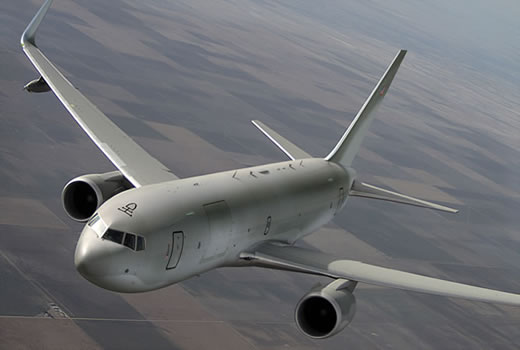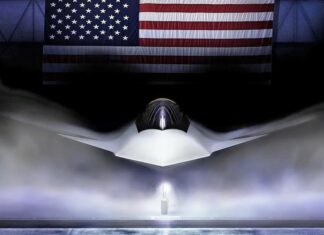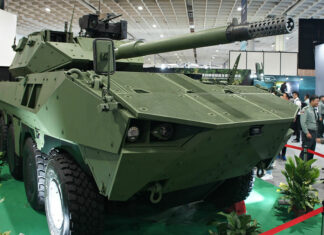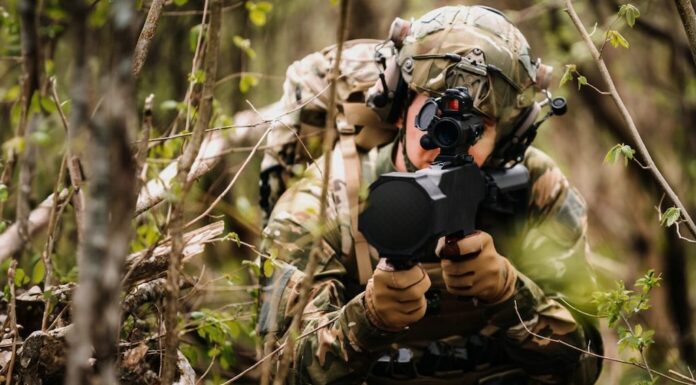
The Pentagon announced Boeing has been awarded over US$3.5 Billion in fixed price, incentive firm contract for engineering and manufacturing development of the KC-46A (formerly KC-X) aerial refuieling tanker. The awarded amount will buy 18 NewGen tankers to be delivered by 2017. Basing decisions for the aircraft will take place over the next couple of years. The proposed tanker uses the Boeing 767-200 platform, enhanced with a ‘787 cockpit and fitted with a refueling boom derived from the KC-10 aircraft. Unlike current U.S. Air Force tankers, the KC-46A will be equipped with hose and drogue refueling systems in addition to the standard boom, enabling the aircraft to support joint forces operations (supporting U.S. Navy, Marine Corps fighters, Special Operations airplanes and coalition air forces.)

According to Cobham, the British supplier selected by Boeing to deliver these refueling systems, each of the 179 KC-46A aircraft will be equipped with a centreline drogue system provided by Cobham. Approximately 30 tankers will also be provided with a pair of wing-mounted aerial refuelling pods, also supplied by the British company, manufactured at its new specialist air-to-air refuelling facilities in Davenport, Iowa.
“Many factors were evaluated during the tanker selection process,” said Secretary of the Air Force Michael Donley. “Selection took into account mission effectiveness in wartime and life cycle costs as embodied in fuel efficiency and military construction costs,” said Donley, emphasizing that both offerors met all the mandatory requirements. Richard Aboulafia of the Teal Group said rising fuel prices had widened the gap in operating costs between the larger Airbus A330-based tanker and Boeing’s more modest 767.
“The thorough and transparent selection process was marked by continual dialogue with offerors to ensure the Air Force had a clear understanding of their proposals and the companies clearly understood the service’s analysis of their offers,” said Donley. “Gen. Schwartz and I are confident in the fact that when our young pilots, boom operators and maintainers receive this aircraft, they will have the tools they need to be successful at what we ask them to do,” Donley said.
This initial order is the preliminary phase of the KC-X program, which will span over decades, delivering up to 179 aerial tankers, at an estimated cost of $35 Billion. Analysts were expecting the competitor EADS to win the Air Force selection.
On March 4, 2011 Reuters reported that Europe’s EADS is expected to announce it will not protest the winning of the U.S. tanker deal by its U.S. rival Boeing Company, giving up on the current aerial tanker program. EADS has until March 7 to decide whether it will protest, but company officials are already shifting their focus to other U.S. weapons competitions and the hunt for acquisitions that could help it expand its footprint in the United States. EADS and Boeing are likely to battle it out again in coming years, when the Pentagon plans to stage separate competitions for other 300-plus refueling planes. “We have given our competitor a tough fight and forced them to offer a very low price. For Boeing, losing this would have been a disaster; for us it is only a lost business opportunity.” Airbus Chief Executive Tom Enders commented.



















